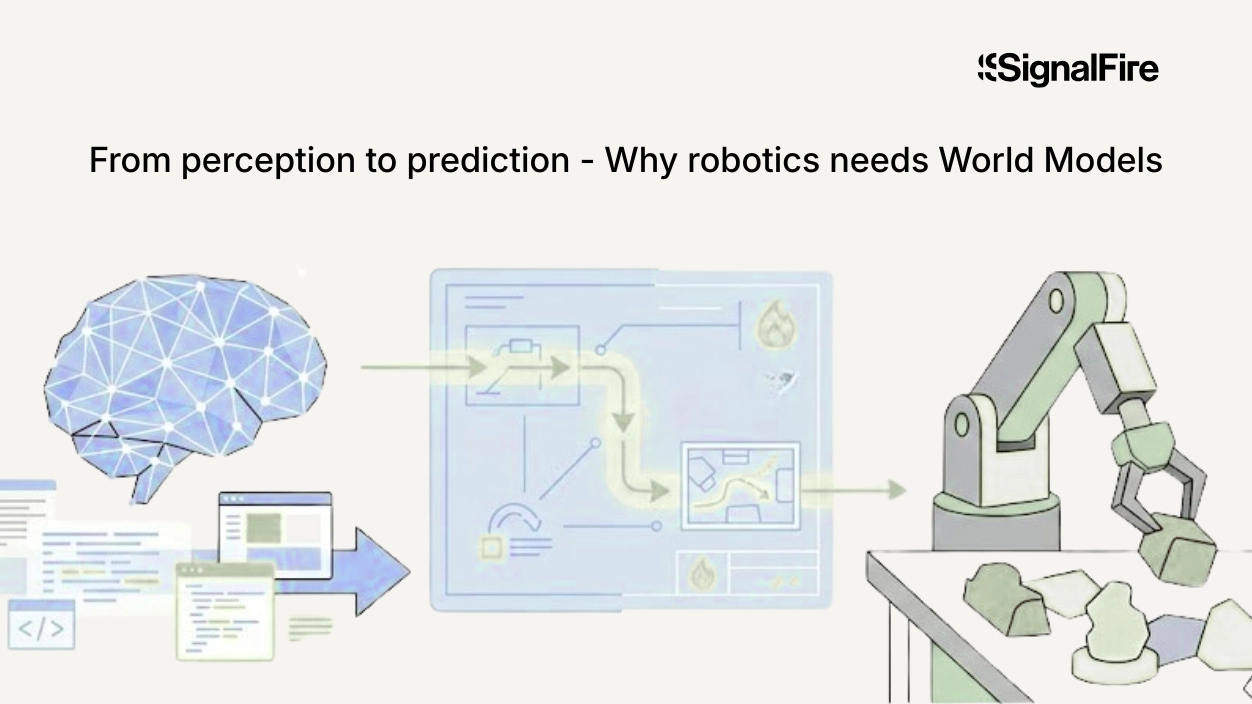
Ten years ago it was controversial to say you were going to use data in venture capital. People thought investing was an art, not a science. But if you’re going to spend all day seeking out startups that are using technology to transform their industries, why not do the same for your own?
That's why, when Chris Farmer wanted to start SignalFire a decade ago, he didn't just go looking for a co-founder or fellow managing partner—he knew he needed a CTO. I joined, and instead of dipping our toe into building technology for venture, we decided to go all in or die trying.
That meant recruiting a team of PhDs in AI and data science plus a crew of engineers. We've been building and fine-tuning our Beacon AI data platform ever since to help us source and vet investments as well as to assist our portfolio companies with recruiting and sales.
Now you see a lot of existing firms trying to graft data onto their process, or newer VCs hiring the odd engineer or data analyst. But if you're already doing venture the traditional way or see another path forward, you won't dedicate the necessary resources to do data-driven venture right.
I’m often asked what it means to be a venture firm CTO, so I wrote this post to share what an org structure with engineering at its core has unlocked for SignalFire. The benefits go far beyond building technology in-house.
Going all-in on AI for venture
Most people who start a venture firm have already worked at one or have a long history in finance or consulting. That's also the reason a lot of firms look and work the same. I'd taken a different path, serving as an engineer at Oracle, leading technical teams at Google, and joining a startup before it was acquired by Twitter.
With that mentality, we see founders as our customers, and building SignalFire like the startups we fund—but we monetize through venture. The first thing we did was interview 500 founders and fellow VCs to find out what they really needed from venture technology.
The resounding answer was “help with recruiting,” since that's where founders spent most of their time and it's what investors were asked to help with most often. Some venture firms already claimed to assist with talent scouting, but they were severely limited by their unscalable teams and offline networks clustered around SF and NYC. If we could build a scalable, self-serve software solution that could be provided directly to portfolio companies while also supercharging our talent team, we could keep helping with recruiting even as the companies and portfolio grew. Meanwhile, we envisioned the tool could help us spot tomorrow's most talented founders and startups before our peers.
We called the tool “Beacon”—a way to see through the fog and bring the brightest minds into our community. My goal was to teach Beacon's algorithms to detect high-potential founders, engineers, nontechnical talent, and companies.
Based on my experience at Google, I began building our data search infrastructure and negotiating licensing deals with dataset vendors. Using the latest machine learning and AI technologies, I converted unstructured data into structured data pipelines that could power differentiated AI products for our investment team and portfolio companies.
I also got involved with our initial fundraising efforts, where we targeted engineering leaders who could provide advice on building Beacon as well as investing capital. Many of them were CTOs and VPs of engineering from companies like Facebook and Google that operated at the scale we were aiming for. We built custom apps that would let our advisors and recruiting experts rank the quality of talent on different axes to generate a labeled data set to train Beacon.

Now, Beacon crunches more than a half-trillion data points from across 40 data sets and millions of web pages to rank more than 600 million tech workers on skill level and hireability, and over 80 million companies on quality. It's helped us source dozens of investments, improve our decision-making process, recruit talent for our companies including C-levels and VPs, and let the founders we back find the best engineers, product managers, sales leaders, and more. And recently, as big tech layoffs and budget cuts make it a little easier to recruit, we've expanded Beacon's ability to assist with go-to-market functions. Now it can generate customer lead lists complete with contact info so portfolio companies can grow revenue even faster.
Pioneering these new applications of data to venture was something we never could have outsourced to some third-party developer. Having a CTO plus PhDs in AI and data science on staff let us make AI our moat.
More than just asset managers
There are few things as frustrating for a founder as having to dumb down their pitch for investors who don't understand the underlying technology. Developing our own AI in-house not only means we're up on the latest tech advancements: it means founders relate to us as fellow builders. Most haven't gotten a tech demo from a venture firm, but love seeing how Beacon works and can help them. We take it as a compliment when they say we don't come across as merely asset managers and are actually active builders like they are.

In fact, we embrace this cross-disciplinary approach. We have a CTO who straddles the worlds of investment and software development. We also encourage our engineering and data science teams to sit in on pitches and deal discussions since they may be the target end user or have experiences with similar engineering approaches. Applying the most recent breakthroughs in AI ourselves helps us ask founders deeper questions and develop more nuanced theses on what happens next. It makes it easier to see through slick but shallow business plans or surface-level differentiation when you have a whole team that can dig into the code.
After a decade of building AI, we can distinguish between the crypto hucksters jumping on the bandwagon, building light wrappers around LLMs that make great demos but aren’t sustainably differentiated, and the true engineering leaders producing enduring innovation.
And vice versa, our investment research often inspires Beacon's roadmap. We recently hired one of Meta's top product managers, Heath Black, to steer our AI development. He's been hard at work integrating the best LLMs to more efficiently source, sort, and support startups. That's also let me focus more on strategic architectural decisions for Beacon, advising portfolio companies on their own technical challenges, and seeking the next disruptive infrastructure companies.
With new ideas, domains, technologies, and market conditions constantly arising, the job of a VC CTO is never dull. Over the next five years, we'll see healthcare grapple with its data and labor issues, cybersecurity face fresh threats, and AI transform the enterprise. Yet I suspect that a solid technical foundation and a practiced grasp on the newest techniques will be more important than ever.
It's not enough to be an engineer in the past tense when you're funding the present to create the future.
*Portfolio company founders listed above have not received any compensation for this feedback and may or may not have invested in a SignalFire fund. These founders may or may not serve as Affiliate Advisors, Retained Advisors, or consultants to provide their expertise on a formal or ad hoc basis. They are not employed by SignalFire and do not provide investment advisory services to clients on behalf of SignalFire. Please refer to our disclosures page for additional disclosures.
Related posts

Unicorn DNA — Where today’s billion-dollar startup founders come from

The missing piece in robotics: A model of the world




